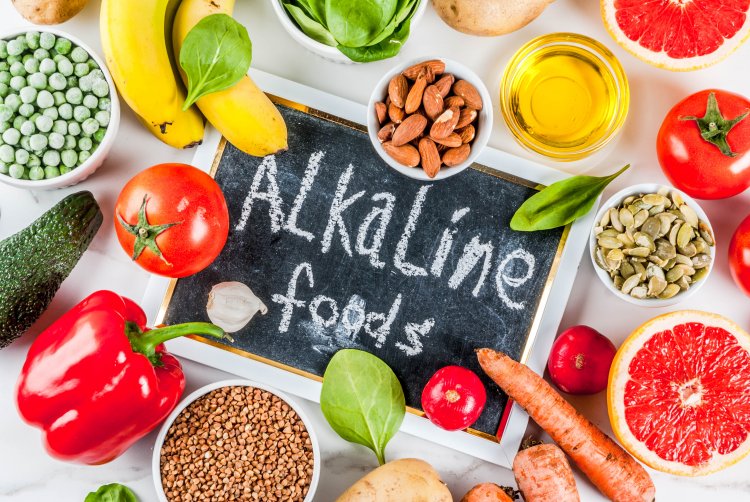Unlocking the Potential of Alkaline Nutrition: A Comprehensive Guide
In recent years, the concept of alkaline nutrition has emerged as a promising approach to promoting health and vitality. Rooted in the idea of achieving optimal pH balance within the body, alkaline diets emphasize the consumption of foods that have an alkalizing effect, while limiting acidic-forming foods. This dietary philosophy has garnered significant attention due to its purported benefits, ranging from improved digestion to reduced inflammation and even enhanced bone health. In this comprehensive guide, we delve deeper into the principles of alkaline nutrition, explore its potential benefits, and examine the scientific evidence behind its claims. #AlkalineNutrition #OptimalPHBalance #HealthBenefits #AlkalineFoods #DigestiveHealth #InflammationReduction #BoneHealth #WeightManagement #NutrientDense #PlantBasedDiet #Hydration #BalancedNutrition #WellnessGoals #HealthyLiving #AlkalineDietaryApproach

Understanding Alkaline Nutrition
At the core of the alkaline diet is the belief that the foods we consume can profoundly influence the pH levels within our bodies. The pH scale, which ranges from 0 to 14, measures the acidity or alkalinity of a substance. The human body operates within a tightly regulated pH range, with slight deviations potentially disrupting essential physiological processes. Proponents of alkaline nutrition argue that the modern Western diet, characterized by excessive consumption of processed foods, animal proteins, and refined sugars, tends to create an acidic environment within the body. This acidity, they claim, can contribute to a range of health issues, including inflammation, impaired immune function, and chronic diseases such as cardiovascular disease and cancer.
Alkaline Diets Seek to Counteract This Acidity
Alkaline diets seek to counteract this acidity by promoting the consumption of alkaline-forming foods, such as fruits, vegetables, nuts, seeds, and legumes. These foods are rich in essential nutrients, antioxidants, and phytonutrients, which not only help to alkalize the body but also support overall health and well-being. In contrast, acidic-forming foods, including meat, dairy, refined grains, and processed foods, are minimized or avoided in this dietary approach.
Exploring the Potential Benefits
Advocates of alkaline nutrition tout a wide range of potential benefits associated with this dietary approach. These include:
- Improved pH Balance
- Reduced Inflammation
- Enhanced Bone Health
- Weight Management
- Improved Digestive Function
Evaluating the Scientific Evidence
While the potential benefits of alkaline nutrition are compelling, scientific evidence supporting its claims remains somewhat limited and inconclusive. Some studies have shown associations between alkaline diets and improved markers of health, such as reduced inflammation and improved bone density. However, many of these studies are observational in nature, making it difficult to establish causality.
Practical Tips for Implementation
For those interested in adopting an alkaline dietary approach, here are some practical tips:
- Emphasize Whole, Plant-Based Foods
- Stay Hydrated
- Limit Acidic Foods
- Monitor Nutrient Intake
- Listen to Your Body
In conclusion, alkaline nutrition represents a promising dietary approach that emphasizes the consumption of alkaline-forming foods to support overall health and well-being. While the scientific evidence supporting its benefits is still evolving, many individuals have reported positive outcomes from adopting alkaline dietary principles. By focusing on whole, nutrient-dense foods and minimizing acidic-forming foods, you can take proactive steps towards optimizing your health and vitality through alkaline nutrition.
Discover Coupoly's exclusive Medical Concierge Service, connecting you with renowned doctors and clinics, whether in the UK or abroad.
Get in Touch
Disclaimer:
The information provided in this article is for educational purposes only and should not be considered medical advice. If you have any health concerns or are experiencing symptoms, it is important to consult with a healthcare professional, such as a doctor or clinic, for proper diagnosis and treatment. Always seek the advice of your doctor or other qualified health provider with any questions you may have regarding a medical condition. Do not disregard professional medical advice or delay in seeking it because of something you have read in this article.
What's Your Reaction?





















